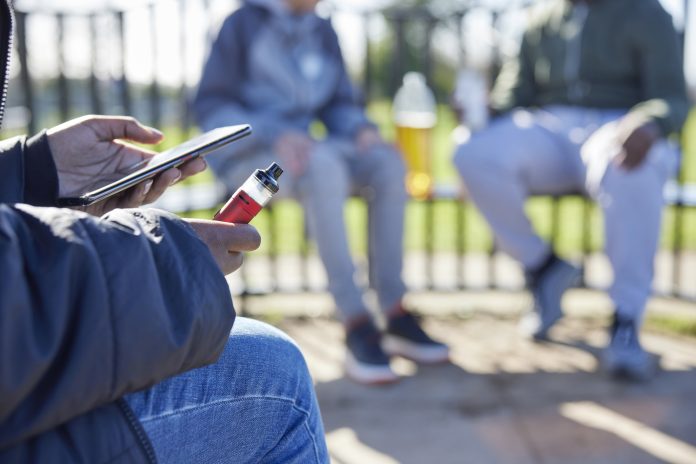A new major research project will explore the long-term health impacts of vaping on children and young adults
The £62 million study, funded by the UK Research and Innovation (UKRI), will track 100,000 individuals aged 8 to 18 over a decade, hopefully providing an analysis of their behaviour, biology, and health.
The overall hope is to give a clear understanding of how vaping affects the health and well-being of young people.
The long-term effects of vaping
The research comes as the trends in young people vaping continue to rise. A quarter of 11 to 15-year-olds have already tried vaping, a trend that has alarmed health experts.
Although vaping is widely considered less harmful than smoking and can help adults quit, its rising popularity among teenagers has raised questions about potential long-term effects, especially since young people are more vulnerable to the risks of nicotine and other chemicals found in vapes.
Tobacco and vapes bill
This research is part of a larger effort to combat youth vaping. As well as the study, the UK government is pushing forward with the Tobacco and Vapes Bill, which will introduce measures to limit the appeal of vaping products to young people.
The bill includes restrictions on flavours, packaging, and displays specifically designed to attract children. It also aims to curb underage sales and ban the advertising and sponsorship of vapes.
The £62 million research initiative is one of three key studies commissioned by the government, alongside the first-ever public health campaign in England to educate children about the dangers of vaping.
The campaign, called “Love Your Lungs,” will raise awareness of the health risks associated with vaping, particularly the impact it can have on developing lungs and brains. The government targets young people aged 13 to 18, using social media platforms and influencers to communicate the message directly to its audience.
The effect of vaping on young people’s future health
The research will focus on understanding how vaping affects young people’s health over time, including the potential damage to their lungs and brains.
Evidence so far suggests that vaping can cause inflammation in the airways, and studies have shown that for those with asthma, it can trigger their condition.
Nicotine, which is often in vapes, can also harm developing brains and impair cognitive development. This shows the need for action to prevent young people from taking up vaping in the first place.
Along with these research efforts, the government has introduced additional legislative measures. Disposable vapes will be banned starting June 1, 2025, under separate environmental regulations. This is expected to reduce the accessibility and appeal of disposable vapes to young people. The Tobacco and Vapes Bill includes plans to strengthen enforcement to prevent underage sales and stop illicit vaping products from reaching the market.
The research and the new campaign form part of the government’s wider Plan for Change, which focuses on prevention to reduce pressure on the NHS and address the growing waiting lists. By tackling youth vaping now, the government aims to protect young people’s health while reducing the long-term burden on the healthcare system. Through these combined efforts, officials hope to create a healthier, smoke-free future for the next generation.











